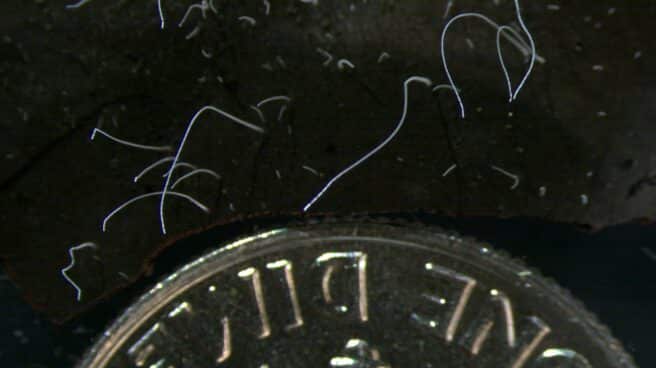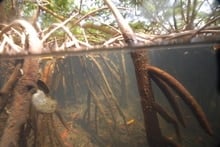

The bacterium Thiomargarita magnifica.
This is 50 times more than bacteria, which until now were considered gigantic. It reaches a centimeter in length and is therefore visible to the naked eye. It was discovered in the shallow tropical marine mangroves of Guadeloupe in the Caribbean, and the discovery is published in a journal. The science.
“Finding this bacterium is like finding a person the size of Mount Everest,” explains Jean-Marie Folland, lead author of the study. The microorganism was found in some sunken leaves in the waters of the Caribbean mangroves and was named Thiomargarita magnificence.
However, Volland explains in a video released by the US Department of Energy’s Joint Genome Institute that in addition to its incredible size, its intricate structure is even “more exciting.”

The fact is that bacteria are usually represented by individual microscopic cells, the DNA of which floats freely in their cytoplasm. However, in Thiomargarita Magnifica, DNA does not float freely inside the cell, as in other bacteria, but is separated within membrane-bound structures, which is typical for more complex cells.
Our analyzes show that these membrane-bound compartments are metabolically active, with activity occurring along the entire length of the bacterial cell, not just at its growing end. It is possible that this unique spatial organization and membrane bioenergetic system, indicative of the increasing complexity of the Thiomargarita lineage, may have allowed this bacterium to overcome the size and volume limitations normally associated with bacteria, the researchers point out.
Why these organisms must be so large is an intriguing and open question, the researchers say in their study. promising article is attached to the discovery, which also suggests that Thiomargarita magnifica is unlikely to represent an upper limit on the size of bacterial cells. “Bacteria are endlessly adaptable and always surprising, and should never be underestimated,” they write. The authors conclude: “The discovery … suggests that larger, more complex bacteria may be lurking in plain sight.”
Source: El Independiente